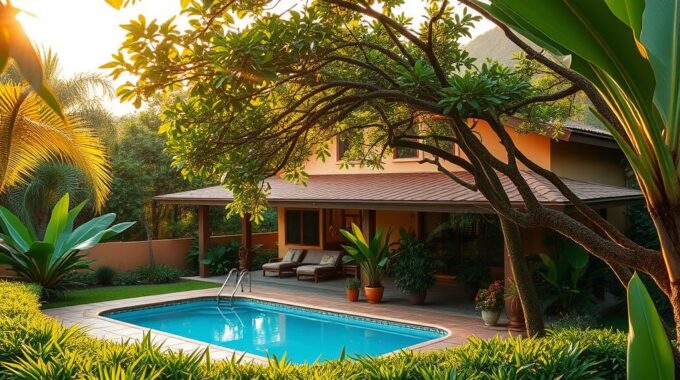As a hub for international workers and service providers, Costa Rica has introduced Law No…
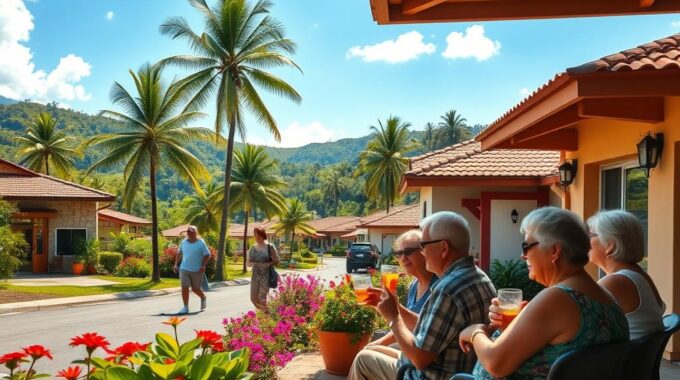
Cost of Living for Pensionado Residents in Costa Rica
Costa Rica has become a haven for retirees, with over 120,000 Americans having made the move. At Costa Rica Immigration Experts (CRIE), we have helped numerous clients achieve their dream of residing in this tropical paradise. With more than 20 years of experience, we understand the intricacies of relocating to Costa Rica.
The country’s stunning beauty, coupled with its low cost of living and excellent healthcare, makes it an ideal destination for retirees. The Pensionado Visa program offers significant benefits, including tax breaks and access to public healthcare, making it an attractive option for those looking to maximize their retirement income.
We will explore the comprehensive cost of living for pensionado residents, breaking down major expenses and examining the financial benefits of the pensionado program. This will provide a clear picture of what retirees can expect when relocating to Costa Rica.
Understanding the Pensionado Residency Program in Costa Rica
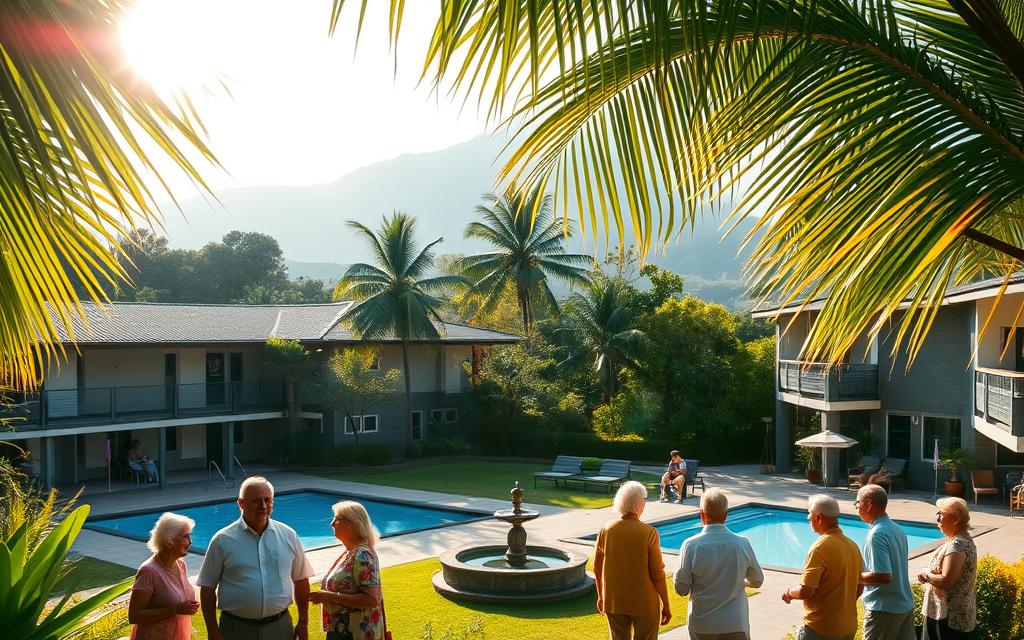
For those considering retirement abroad, Costa Rica’s Pensionado Visa offers an attractive option with its unique benefits and requirements. The Pensionado Residency Program is specifically designed for retirees who wish to relocate to Costa Rica, enjoying the country’s tropical climate, rich culture, and lower cost of living.
What is the Pensionado Visa?
The Pensionado Visa is a special visa category for retirees, allowing them to live in Costa Rica with their spouses and dependent children under 25 years of age (or older if they have a disability). This visa is initially valid for two years and can be renewed, providing a pathway to permanent residency after three years of temporary residency.
To qualify for the Pensionado Visa, applicants must demonstrate a minimum monthly pension or retirement income of $1,000 USD, guaranteed for life, as evidenced by a pension letter. This requirement is a crucial aspect of the program, ensuring that retirees can support themselves during their stay in Costa Rica.
Eligibility Requirements for Pensionado Residency
To be eligible for the Pensionado Residency Program, applicants must meet specific requirements. These include having a clean criminal record, demonstrating the required monthly pension or retirement income, and completing the necessary application process through Costa Rica’s immigration department.
As outlined by the Costa Rica Investment and Real Estate, understanding these requirements is crucial for a successful application. The program allows retirees to include their spouse and dependent children in their application, making it an attractive option for those looking to relocate with their families.
The initial residency permit is valid for two years and can be renewed. After three years of temporary residency, applicants can apply for permanent residency, providing a long-term solution for retirees.
Cost of Living for Pensionado Residents in Costa Rica: Overview
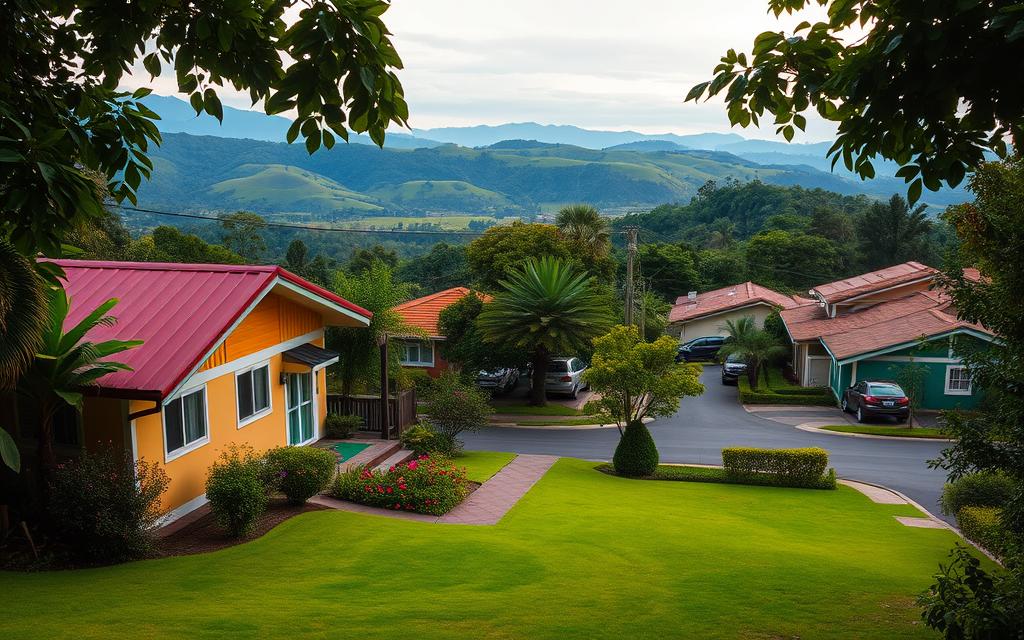
Understanding the cost of living in Costa Rica is crucial for retirees considering the pensionado residency program. Costa Rica has become an attractive destination for pensionados due to its balance of affordability and quality of life.
The average monthly cost of living in Costa Rica varies significantly based on individual circumstances. According to recent data, a single person can expect to pay around $781 per month, while a family of four may spend approximately $2832.
Average Monthly Expenses for Singles vs. Couples
For pensionado residents, average monthly expenses in Costa Rica can range from $1,600 to $2,000 for singles and $2,000 to $3,000 for couples. These estimates cover essential expenses such as food, transportation, healthcare, and utilities.
Rent is a significant factor in overall expenses and is calculated separately. The cost of rent in Costa Rica is notably lower compared to the U.S., with savings averaging around 65%.
Cost Comparison: Costa Rica vs. North America
When comparing the cost of living in Costa Rica to North America, retirees can expect significant savings. Overall costs in Costa Rica are 27% lower than in the United States and 24% less than in Canada.
The cost advantage is particularly pronounced in housing, with rent being 65% less than comparable accommodations in the U.S. This makes Costa Rica an attractive option for retirees looking to maximize their pension and savings.
Housing Costs for Pensionado Residents
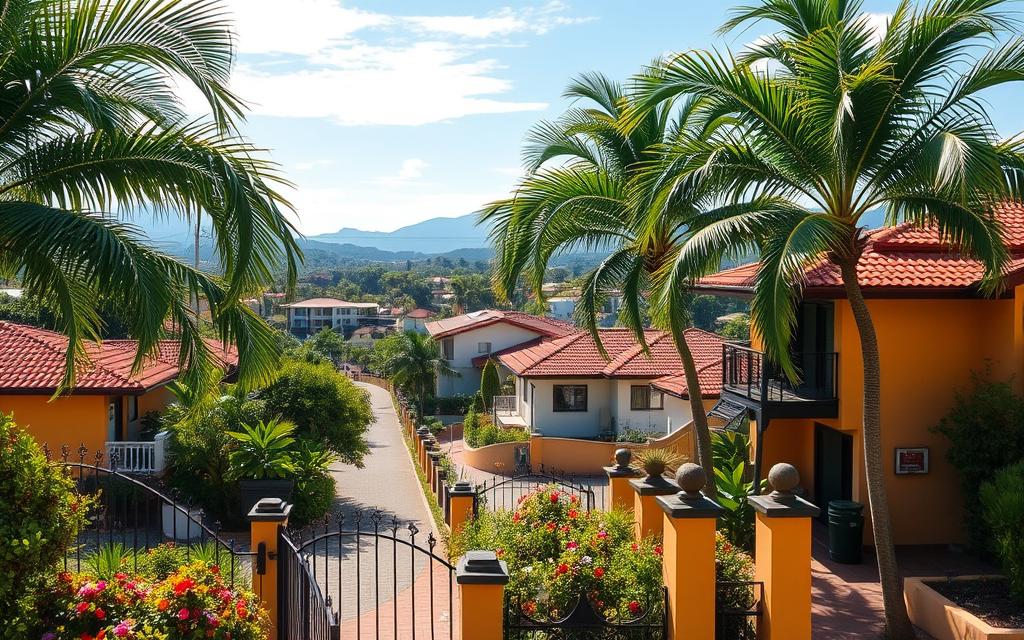
Housing costs play a crucial role in determining the overall cost of living for Pensionado residents in Costa Rica. As a significant expense, housing can account for at least 25% of one’s income. However, Costa Rica offers a more affordable housing market compared to North America, with average rents being 65% less than in the U.S.
Rental Prices in Different Regions
Rental prices in Costa Rica vary significantly across different regions. In urban areas like San José, a furnished apartment can cost between $800 to $1,200 per month. In contrast, similar accommodations in smaller towns or further from the city center can be more affordable, ranging from $400 to $600 per month. For those looking for a more budget-friendly option, studios can be found for around $800 per month.
When choosing where to live, Pensionado residents should consider their lifestyle preferences and budget. Living near the beach or in areas with amenities comes at a premium, while simpler homes a short drive from these amenities can offer more affordability.
- Urban areas: $800-$1,200 per month for a furnished apartment
- Smaller towns: $400-$600 per month for similar accommodations
- Studio apartments: around $800 per month
Property Purchase Considerations and Costs
For Pensionado residents considering purchasing property, Costa Rica’s real estate market offers various opportunities. The average price per square foot in urban areas is approximately $179.20. While buying a home can be a significant investment, it also comes with long-term savings on property taxes and insurance, which are substantially lower than in North America.
When evaluating the pros and cons of renting versus buying, factors such as investment potential, flexibility, and long-term financial planning should be considered. Many expat communities have developed in certain regions, providing valuable social connections and support networks for new residents.
Food and Dining Expenses
Embracing the local cuisine and shopping habits can lead to substantial savings on food and dining expenses for pensionados in Costa Rica. The cost of living in Costa Rica is influenced significantly by food choices, with locally produced items being generally more affordable.
Grocery Costs and Local Markets
Grocery costs in Costa Rica can be relatively low, especially for those who shop at local markets, known as “ferias.” These weekly markets offer a wide variety of fresh fruits and vegetables at very competitive prices. For about $20-30, one can purchase a week’s worth of fresh produce.
- Local farmers’ markets provide exceptional value for fresh produce.
- Shopping at ferias can significantly reduce grocery bills.
- Fresh fruits and vegetables are not only affordable but also of high quality.
Restaurant and Dining Out Prices
Dining out is also an affordable option in Costa Rica. Meals at local restaurants, or “sodas,” are typically priced at about half the cost of those in North American cities. For more information on the overall cost of living in Costa Rica, you can refer to this essential guide.
- Meals at local establishments are generally 50-70% less expensive than in the U.S. or Canada.
- Higher-end restaurants are available but still offer competitive pricing.
- The standard 10% tip is usually included in the menu price, simplifying the dining experience.
By adopting local eating habits and shopping at ferias, pensionado residents can enjoy a high quality of life while keeping their food and dining expenses in check.
Healthcare Costs and Insurance Options

Costa Rica’s healthcare system is a significant draw for pensionados, offering a blend of quality and affordability. As retirees age, access to quality healthcare becomes increasingly important, and Costa Rica’s system is well-equipped to meet these needs.
Public Healthcare System (Caja) Costs
The public healthcare system in Costa Rica, known as the Caja Costarricense de Seguro Social (CCSS), is mandatory for pensionado residents. The cost is approximately 9-11% of the declared monthly income, providing comprehensive coverage. This includes access to public hospitals and clinics throughout the country, with most medical services and many prescriptions covered at no additional cost beyond the monthly premium.
Private Insurance Options and Prices
While the Caja provides excellent coverage, some pensionados opt for private insurance to access a broader range of private clinics, doctors, and hospitals. Private health insurance in Costa Rica costs between $60 and $250 per month, depending on age, health status, and coverage level. This is significantly less than comparable plans in the United States, making it an attractive option for those seeking additional healthcare choices.
Medical Procedure and Medication Costs
Medical procedures in Costa Rica’s private facilities are generally 50-70% less expensive than in the United States, making the country a popular destination for medical tourism. Medication costs vary, but generic medications offer significant savings. Many pensionado residents utilize a combination of public and private healthcare, benefiting from the comprehensive coverage of the Caja while maintaining private insurance for faster access to specialists and certain procedures.
Transportation and Utility Expenses
Transportation and utility expenses are significant components of the overall cost of living for pensionados in Costa Rica. These costs can vary significantly depending on lifestyle choices and location within the country.
Vehicle Ownership vs. Public Transportation Costs
While buses, taxis, and rideshare services like Uber are inexpensive transportation options in Costa Rica, many retirees prefer owning a vehicle for the freedom and convenience it provides. However, owning a car in Costa Rica comes with a significant upfront cost due to high import duties ranging from 60-80% of the vehicle’s value. This makes purchasing a car in Costa Rica considerably more expensive than in North America. To mitigate this, many opt for older vehicles, which not only reduces the initial cost but also makes financial sense given the lower labor costs for car maintenance in Costa Rica. On the other hand, public transportation offers a cost-effective alternative, with bus fares ranging from $0.50 to $20 depending on distance, and taxi services being significantly cheaper than in the United States.
Electricity, Water, Internet, and Other Utilities
Utility costs in Costa Rica have their unique aspects. Electricity is slightly more expensive per kilowatt-hour compared to the U.S., but the overall bill may be lower due to the tropical climate requiring less energy for heating. Water is safe to drink and relatively inexpensive throughout Costa Rica, offering significant savings compared to relying on bottled water. Internet and cable television services are widely available and typically cost 20-30% less than equivalent services in North America, although speeds and reliability can vary by location.
By understanding these costs and making informed decisions, pensionados can effectively manage their transportation and utility expenses in Costa Rica.
Popular Retirement Destinations and Their Cost Variations
Costa Rica offers a diverse range of retirement destinations, each with its unique charm and cost considerations. For pensionado residents, the choice of location depends on various factors, including climate, amenities, and cost of living.
Central Valley
The Central Valley, encompassing San José, Heredia, and Escazú, is a preferred location for many retirees. It offers a temperate climate, excellent healthcare facilities, and urban amenities. The cost of living here is generally higher compared to other regions, but the infrastructure and expat communities make it an attractive choice. Comparing life in Costa Rica’s beaches versus the Central can help pensionados make an informed decision.
Coastal Areas
Coastal towns like Tamarindo, Quepos, and Dominical offer a beachfront lifestyle with vibrant expat communities. While ocean-view properties come at a premium, the lifestyle benefits are significant. These areas have higher costs for utilities and imported goods but provide a unique retirement experience.
Rural and Mountain Regions
Rural and mountain regions in Costa Rica provide a more authentic cultural experience and lower living costs. Housing is significantly more affordable, and the pace of life is slower. These areas are ideal for retirees seeking a tranquil and cost-effective lifestyle.
In conclusion, Costa Rica’s diverse regions cater to various retirement preferences and budgets. By understanding the cost variations and lifestyle offerings of each area, pensionado residents can make informed decisions about their retirement location.
Tax Benefits and Financial Advantages for Pensionado Residents
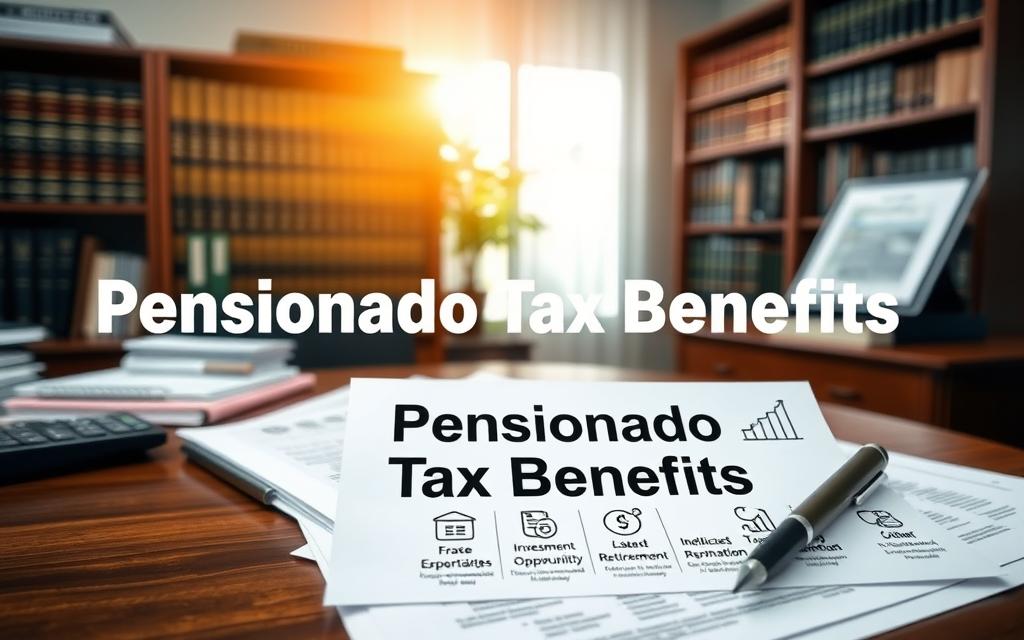
One of the most compelling reasons to choose Costa Rica for retirement is the Pensionado Visa’s substantial tax benefits. The Pensionado residency program is designed to attract retirees by offering significant financial advantages, making Costa Rica an attractive destination for those looking to maximize their retirement income.
Income Tax Exemptions
Pensionado residents enjoy significant income tax exemptions. They are not required to pay taxes on foreign-sourced income, including Social Security benefits, pensions, and investment income. This exemption can significantly increase a retiree’s disposable income, making Costa Rica a financially attractive retirement destination. For more information on the Pensionado residency program, you can visit Pensionado Residency in Costa Rica.
- Foreign-sourced income is tax-exempt for Pensionado residents.
- This includes Social Security benefits, pensions, and investment income.
- The exemption can significantly increase disposable income for retirees.
Import Tax Benefits
Pensionado residents also benefit from import tax exemptions on household goods and personal effects when establishing residency. Additional exemptions apply to vehicles, though with certain limitations and requirements.
- One-time exemption on household goods and personal effects.
- Exemptions on vehicles with specific requirements.
Banking and Investment Considerations
Pensionado residents have various banking and investment options. They can open Costa Rican bank accounts, manage international transfers, and handle currency exchange. Investment opportunities in Costa Rica include real estate and business ownership, offering retirees a chance to stay active and engaged.
Conclusion: Is the Pensionado Program Right for Your Retirement?
As we wrap up our exploration of Costa Rica’s Pensionado program, it’s clear that this retirement option offers a unique blend of financial benefits and lifestyle advantages. The pensionado program provides significant advantages for retirees, including tax benefits, healthcare access, and a lower overall cost of living compared to North America.
To determine if this program aligns with your retirement goals and financial situation, several key factors must be considered. The minimum pension requirement of $1,000 monthly is a crucial financial consideration, along with overall cost of living expectations and long-term financial planning necessary for a successful retirement in Costa Rica.
Lifestyle factors are equally important in this decision. Your climate preferences, desired proximity to beaches or urban amenities, and comfort with living in a different culture and language environment will all play a role in determining whether Costa Rica is the right fit for you.
The initial residency permit is valid for two years and can be renewed, with the possibility of applying for permanent residency after three years, making it a viable long-term solution for retirement. Working with experienced immigration experts like Costa Rica Immigration Experts (CRIE) can simplify the application process and help navigate the requirements efficiently.
Every residency application is unique, and professional guidance can help ensure that your specific situation, including family size and document requirements, is properly addressed. Ultimately, the pensionado program offers an attractive combination of financial benefits and quality of life that makes Costa Rica one of the world’s premier retirement destinations for those who meet the requirements and embrace the country’s “Pura Vida” lifestyle.
If you’re considering making Costa Rica your retirement haven, we invite you to start your residency process with us today. Our immigration experts are available to answer your questions and provide personalized guidance. Please call or WhatsApp us at +506 8706-3888, +506 8373 2085, or +1 305-906-6784 for a consultation. You can also visit our website at www.crie.cr or email us at info@crie.cr.


